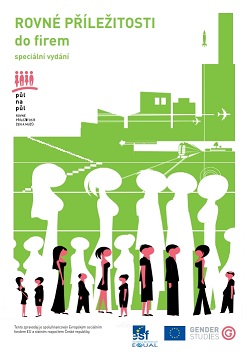
We kindly inform you that, as long as the subject affiliation of our 300.000+ articles is in progress, you might get unsufficient or no results on your third level or second level search. In this case, please broaden your search criteria.

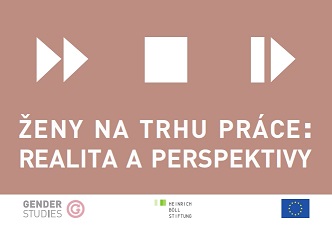









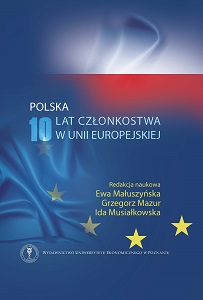
Celem artykułu jest oszacowanie poziomu bezrobocia równowagi w Polsce w latach 1996–2012. W artykule została podjęta również próba zbadania wpływu odsetka bezrobotnych długookresowo oraz poziomu aktywności zawodowej na poziom bezrobocia równowagi. Szacunki bezrobocia równowagi zostały przeprowadzone zgodnie z modelem VAR. W analizach empirycznych zostały wykorzystane kwartalne dane publikowane przez GUS. Struktura opracowania jest następująca. W punkcie 1 przedstawiono rozważania teoretyczne dotyczące determinatów bezrobocia równowagi. Punkt 2 jest poświęcony analizie tendencji zmian stóp bezrobocia w Polsce. W punkcie 3 zostały przedstawione wyniki oszacowań bezrobocia równowagi w Polsce i w wybranych krajach UE. W punkcie tym podjęto również próbę zbadania wpływu poziomu aktywności zawodowej i odsetka bezrobotnych długookresowo na poziom bezrobocia równowagi. W zakończeniu zawarto wnioski z przeprowadzonych analiz.
More...
W niniejszym artykule zostanie przyjęta definicja oraz komponenty flexicurity zaproponowane przez Komisję Europejską. Wybór ten uzasadnia przede wszystkim fakt, iż przyczynkiem do powstania tego artykułu jest dekada członkostwa Polski, Litwy, Łotwy i Estonii w Unii Europejskiej i zasadne wydaje się przyjęcie perspektywy aprobowanej przez tę instytucję. Punktem odniesienia do dokonania oceny poziomu elastyczności polskiego, łotewskiego i estońskiego rynku pracy będą duńskie wskaźniki ochrony stosunku pracy.
More...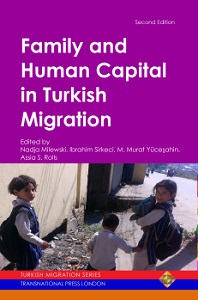
In Germany, the second-generation migrants’ share of the overall population is growing fast and, among them, those of Turkish origin represent the largest group. They are also the group with the lowest labour market outcomes, and this holds especially true for secondgeneration Turkish women. Of all the ethnic groups, their employment rate and hourly income are the lowest (Algan et al., 2010; Seibert, 2011), while their chances of attaining non-manual employment positions do not differ from those of native-born German women (Seibert, 2011). In addition, they have a higher risk of unemployment and being a housewife (Fincke 2009; Haug 2002), and they have the highest out of labour force rate (Luthra 2013). In comparison, other second-generation women in Germany of Iberian, Greek, or Yugoslavian origin, have less pronounced disadvantages (Heath et al. 2008). While the disadvantages of second-generation Turkish women have also been found for the Netherlands, Belgium, and Austria (Heath et al. 2008), nothing is known about the development of these disadvantages over the course of their employment careers.
More...
During the last three decades, the phenomenon of flexibility has attracted a great deal of attention in sociology, not only in relation to work flexibility but also flexibility of migration. In this respect, the structural changes in both employment relationships and migratory conditions have brought about new lifestyles. The theoretical debates in the field of migration studies and human capital have often concentrated on the (changing) roles of nation-states, transnational corporations, and recruitment agencies at the macro level. Sassen (1988; 1998) observed two critical social classes and their spatial polarization in transnational migration. People from low income groups are employed in low-skilled service jobs. In contrast, there are newly emerging high income segments employed in professions. This latter group are also the “young urban professionals” (yuppies) who tend to be portrayed as enjoying affluent lifestyles (Robinson, 2009).
More...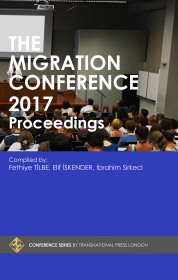
The objective of this paper is the engagement of Albanian communities abroad (ACA) with the purpose of increasing the quality of social capital in Albania. Studying Albanian migrants abroad and their potential capacity to contribute to the development of the country is important due to the characteristics of the Albanian migration. ACA possess valuable skills, experiences, and contacts that they can transfer to individuals in Albania. Based on Albania’s context, we suggest that knowledge transfer through mentoring and counseling is an important approach that should receive more attention. Besides improving the skills of colleagues in the homeland, communities abroad can offer career guidance and study abroad counseling. Hence, Albanian communities abroad can enhance country’s development through the outflow of knowledge and skills. We conclude that different actors such as government, universities and entrepreneurs should build mechanisms to improve the ties between Albania and Albanian communities abroad, specifically with groups of individuals belonging to academic and business environments.
More...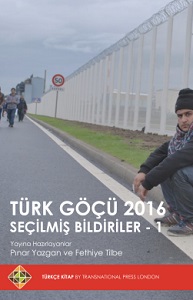
Türkiye’nin 2005-2015 yılları arasındaki ekonomik performansına bakıldığında, reel GSYH’nin yaklaşık yıllık ortalama %4 arttığı, kamu borç stokunun %67,7’den %36,3’e gerilediği, bütçe açığının %10’dan %3’ün altına düştüğü ve kişi başına düşen milli gelirinin 4.565 ABD dolarından 9.177 ABD dolarına çıktığı görülmektedir. Aynı dönemde ihracat gelirlerinin 47 milyar ABD dolarından 152 milyar ABD dolarına, turizm gelirlerinin ise 14 milyar ABD dolarından 31,465 milyar ABD dolarına ulaşmıştır. Bu durum Türkiye’yi Avrupa Birliği Bölgesi’ndeki 6. büyük ekonomi, dünyanın ise 17. büyük ekonomisi konumuna gelmiştir. Son dönemlerde ekonomi alanında gösterilen bu ilerlemenin ardından Türkiye Cumhuriyeti, kuruluşunun 100. Yılında denk gelen 2023 yılında dünyanın en büyük 10. ve Avrupa’nın en büyük 3. ekonomisi olma hedefini belirlemiştir. Bu doğrultuda milli gelirini 2 trilyon dolara, kişi başına düşen milli gelirini 25 bin dolara ve ihracatını da 500 milyar dolara çıkarmayı hedeflemektedir. Ancak ülkenin mevcut üretim stratejisini değerlendiren bilim insanları ve politika yapıcılar mevcut üretim sistemiyle belirlenen hedeflerin yakalanmasının son derece zor olduğunu belirtmekte ve ülkenin önündeki en önemli sorunun ARGE yatırımlarındaki ve bilgi üretimindeki yetersizlik ve üretilen bilginin ticarileştirilememesi olduğunu savunmaktadırlar.
More...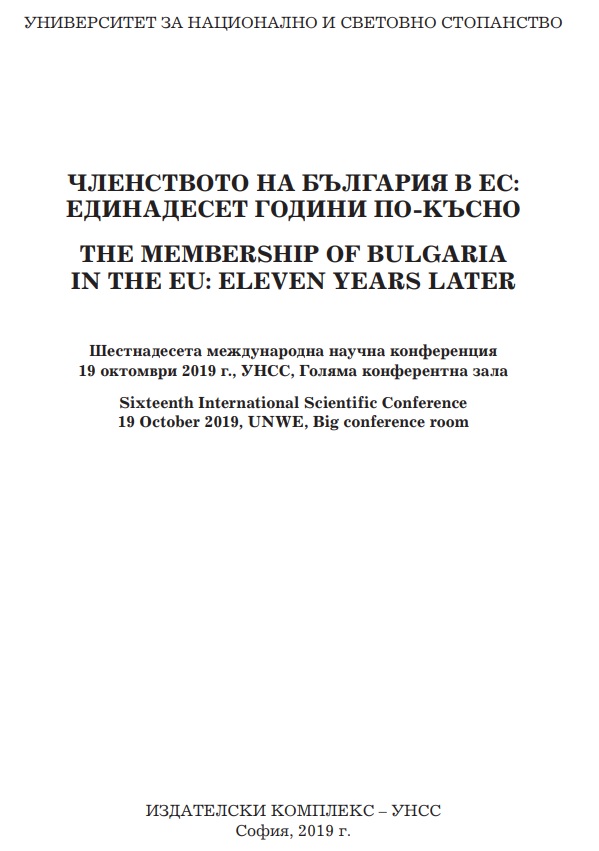
The paper is focused on identification of major features of project team management in a global multicultural environment related to the achievement of success of project portfolio management. A special emphasis is put on the interrelation between project portfolio management, organizational strategy, and effectiveness of project teams operating in a global multicultural environment. Various indications are provided regarding the behavioral aspects, multicultural competences, and virtual project teams’ management. Particular attention is devoted to the impacts of the cultural diversity on the management of multicultural project teams.
More...
This article gives a closer look to the current issues connected to the project stakeholders engagement management. Sometimes project stakeholders’ interests coincide which positively affects the project implementation. Special attention, however, needs to be paid if stakeholders’ interests differ. That is why project success requires proactive actions on behalf of project managers in order to properly interact with the project stakeholders. In addition, managers must bear in mind that stakeholders’ interests change within the different stages of the product life cycle.
More...
Business processes are going global nowadays, project teams include members spread across the globe. The managers face number of challenges managing these teams. They need not just to speak a few languages but to have solid knowledge of different cultures and habits as well as to effectively manage and motivate people who do not think the same way as they do. In this way, this report aims to present the main challenges that arise in managing intercultural teams. The presented position is that managers can effectively manage their teams by adhering to certain principles and strategies – adaptation, structural intervention, management intervention, exit.
More...